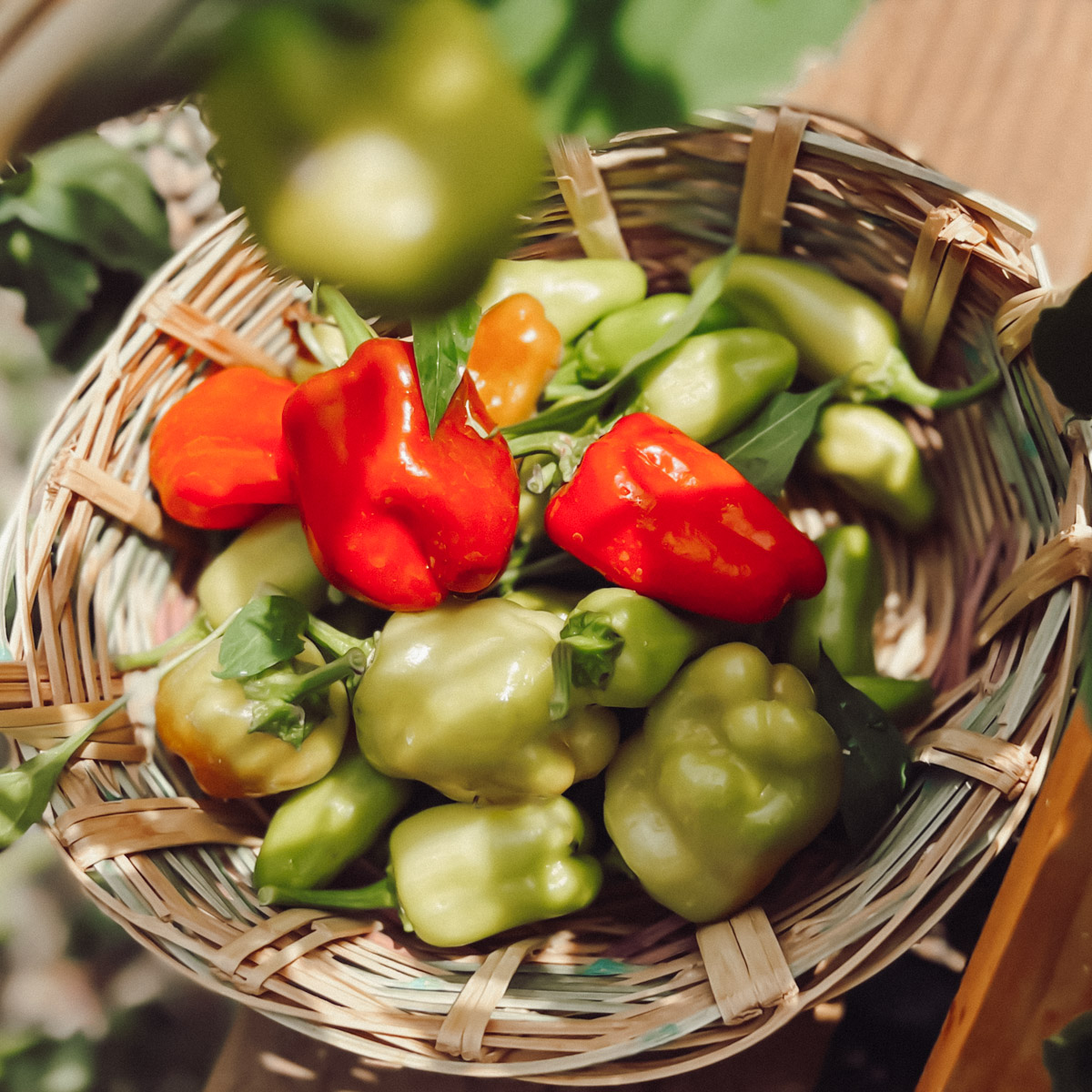Best Fertilizers for Peppers: A Comprehensive Guide to Increase Your Harvest
Best Fertilizers for Peppers: A Comprehensive Guide to Increase Your Harvest
Blog Article
Organic Vs. Synthetic Fertilizers: Which Is Best for Supporting Healthy And Balanced Pepper Plants?
In the world of nurturing healthy pepper plants, the option between synthetic and natural plant foods stands as a crucial choice with significant implications. While both alternatives goal to offer important nutrients to support plant development, the subtleties of their impact on the dirt, plant health, and the atmosphere trigger a debate that echoes throughout the horticulture neighborhood. Recognizing the distinct benefits and potential risks of each fertilizer kind is essential for pepper growers looking for to maximize their yields while preserving a sustainable and eco-conscious approach.
Advantages of Organic Plant Foods
Organic fertilizers provide a sustainable and environmentally-friendly strategy to beneficial pepper plants, supplying essential nutrients without using artificial chemicals. These all-natural fertilizers are stemmed from organic resources such as compost, manure, bone dish, and algae, advertising dirt wellness and biodiversity. Unlike artificial fertilizers, organic choices release nutrients gradually, ensuring a consistent and balanced supply for pepper plants to thrive.
One significant benefit of natural plant foods is their capability to boost soil structure and water retention. By improving dirt wellness, natural fertilizers advertise helpful microbial activity, which assists in nutrient uptake by pepper plants. Additionally, organic fertilizers lower the risk of chemical run-off, shielding water sources from contamination and safeguarding the atmosphere.
In addition, organic plant foods add to lasting soil fertility by promoting the growth of advantageous dirt microorganisms. These organisms aid break down organic issue, releasing nutrients in a type that is quickly obtainable to pepper plants. best fertilizers for peppers. By cultivating a healthy dirt community, natural plant foods sustain lasting pepper growing methods that profit both plants and the environment
Drawbacks of Synthetic Fertilizers
Artificial plant foods, in comparison to their natural equivalents, pose different disadvantages when used to nourish pepper plants, affecting both plant wellness and ecological sustainability. One significant disadvantage of artificial fertilizers is their propensity to leach nutrients from the dirt rapidly.
Moreover, the overuse of synthetic plant foods can add to water pollution. Excess plant foods not absorbed by plants can wash away right into water bodies, resulting in eutrophication, where algae blossoms deplete oxygen levels in the water, hurting aquatic life. Furthermore, synthetic plant foods are usually acquired from non-renewable resources, such as nonrenewable fuel sources, adding to carbon discharges and environmental destruction during their manufacturing.
Nutrient Absorption Comparison
Reliable nutrient absorption plays a vital role in the general health and wellness and growth of pepper plants. When comparing organic and artificial plant foods in terms of nutrient absorption, organic fertilizers have the benefit of giving a more balanced and slow-release source of nutrients (best fertilizers for peppers). Organic plant foods consist of a range of macro and micronutrients that are not only useful for the plants yet likewise promote healthy and balanced soil microbial activity, which assists in nutrient uptake. On the other hand, synthetic plant foods commonly give a fast release of nutrients, which can cause seeping and drainage, causing lower nutrient absorption useful site prices by the plants.
Moreover, organic plant foods enhance soil framework and water retention ability, allowing pepper plants to accessibility nutrients much more successfully. This improved soil quality helps with root development, allowing much better nutrient absorption. Synthetic plant foods, although at first increasing plant growth due to their high nutrient concentrations, may hinder long-term nutrient absorption by derogatory soil health with time.
Environmental Impact Factors To Consider

On the other hand, artificial plant foods, although frequently more focused and right away offered to plants, can have destructive results on the environment if not used correctly (best fertilizers for peppers). Their production calls for high energy inputs, leading to greenhouse gas discharges and adding to environment adjustment. Moreover, the runoff More Info of excess synthetic fertilizers can contaminate water sources, bring about eutrophication and harming marine environments.
Best Fertilizer Practices for Peppers
When fertilizing pepper plants, enhancing nutrient uptake and decreasing environmental influence are essential considerations. To accomplish this, it is vital to follow best fertilizer techniques customized to the particular demands of pepper plants. One critical practice is to execute a dirt examination before using any kind of plant foods. This test can identify the pH degree of the dirt and determine any type of nutrient shortages, directing you in choosing one of the most appropriate fertilizer formulation.
Another vital method is to feed pepper plants at the ideal time. Normally, peppers take advantage of obtaining plant food at growing and afterwards again when web link they begin to blossom. Over-fertilizing can bring about nutrient imbalances and damage the plants, so it is essential to follow recommended application rates.
Additionally, picking a well balanced fertilizer with an NPK proportion that fits pepper plants' needs is fundamental. Organic plant foods, such as compost or manure, can be excellent options as they release nutrients slowly and enhance soil framework with time. Nevertheless, synthetic fertilizers can offer a quick nutrient boost when required. Ultimately, combining synthetic and natural plant foods carefully can aid support healthy and balanced pepper plants while lessening ecological effect.
Final Thought

Organic fertilizers supply an environmentally-friendly and sustainable method to beneficial pepper plants, offering vital nutrients without the usage of artificial chemicals. Unlike artificial plant foods, organic alternatives release nutrients gradually, making sure a steady and well balanced supply for pepper plants to grow.
Synthetic fertilizers, in contrast to their natural counterparts, posture various downsides when made use of to nurture pepper plants, influencing both plant health and wellness and environmental sustainability. When comparing natural and artificial fertilizers in terms of nutrient absorption, natural fertilizers have the benefit of giving a more well balanced and slow-release source of nutrients.Moreover, natural fertilizers enhance dirt structure and water retention capability, allowing pepper plants to accessibility nutrients more effectively.
Report this page